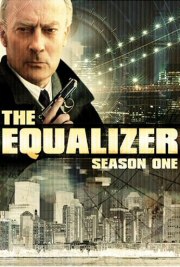 With the temperature dropping, it's time to find someone to keep you warm. Find your hookups with our online dating guide!
With the temperature dropping, it's time to find someone to keep you warm. Find your hookups with our online dating guide!
- Drama
- 1985
- Buy the DVD
Reviewed by Will Harris
()
id: Who are you?
Robert McCall: You telephoned me. I’m Robert McCall.
Kid: The Equalizer…? (Looks him up and down) Oh, man!
Robert McCall: (Bemused) You were possibly expecting Clint Eastwood?
Clint who? That dude ain’t got nothin’ on Edward Woodward!
Yes, we’re aware that there’s a certain irony in the fact that, prior to 1985, the average American’s response to that statement would’ve been, “Edward who?” Woodward, the British actor who strutted and fretted his way through the streets of New York City for four seasons as the title character of “The Equalizer, really only had two films on his resume that had drawn any significant attention in the States: “The Wicker Man” and “Breaker Morant.” It was his titular turn in the latter that got his foot in the door, but it still took a whole lot of incessant pushing from the show’s creator, Michael Sloan, to secure Woodward the lead in his first US television series.
The premise of “The Equalizer,” for those who don’t remember the series, finds former secret agent Robert McCall (Woodward) reaching maximum disillusionment with his profession when a man he has sworn to protect is shot and killed moments after McCall has assured him that all will be well. Rather than leave his past behind, however, he opts to use as many of his contacts as possible to begin a new career of helping the helpless. There’s also a suggestion in the pilot that McCall will finally settle down enough to build a stronger relationship with his son, Scott (William Zabka, a.k.a. the guy who gets his ass beat by Ralph Macchio in the final moments of “The Karate Kid”), but it’s a plot thread that’s rarely utilized during the series.
We’re consistently reminded just what a lonely life McCall has. The first episode has him playing chess with his dog, fer chrissakes, and there are several other occasions where we meet former loves who has proven to be but ships in the night. As The Equalizer, his focus is not on love but, rather, on achieving justice for his clients at all costs, though he usually finds time in each episode to help someone with a slightly less dramatic problem. The most notable example of this comes via “The Defector,” where he spends 2/3 of his time attempting to protect the daughter of a slain agent but manages to work his schedule so that he can teach a neighborhood kid self-defense in order to protect himself from local bullies. (The episode ends with McCall giving the kid a thumbs’s-up after he brings a tough to his knees, which is as it should be.)
You can understand why Woodward was viewed as an unlikely choice to play a guy like The Equalizer, but when you watch the show now, it’s hard to imagine it without him. He’s a classy, well-tailored British gentleman who appears on the surface to be no threat whatsoever, but he’s a crack shot, isn’t afraid to get into a scrap, and can get pretty damned menacing pretty damned quick. It’s a bit cheesy at times when an episode’s B-story feels forced, but Woodward’s performance usually manages to save the day. There really aren’t too many other regulars in the series, but the one who recurs more than any is Robert Lansing, who plays a man simply known as Control; he was McCall’s former supervisor, and the two maintain enough of a relationship for them to communicate back and forth with data when McCall needs info. As far as guest stars, you get appearances from Burt Young (“Rocky”), Bradley Whitford (“The West Wing”), Christine Baranski (“Cybill”), Meat Loaf, Ray Sharkey, Tony Shaloub, and the late, great J.T. Walsh, but you just can’t beat Adam Ant’s turn as a high-class pimp. Also worth noting is Jerry Stiller’s role in the pilot as a former spy who used to work with McCall (and, indeed, first dubbed him “The Equalizer”), but, alas, the character never reappeared.
The most disappointing realization about “The Equalizer” is just how dated Stewart Copeland’s once-vaunted score has become; it thumps through the speakers in a loud and distracting manner, perpetually reminding you that you’re watching a show from the 1980s. Then again, maybe that’s a good thing: it sets the stage accordingly, keeping your present-day expectations from getting too high. You might be thinking, “Geez, I can’t believe I used to watch this,” but, at the same time, you’ll have a smile on your face and find yourself remembering just how much you enjoyed it the first time around.
Special Features: Given Universal’s track record for providing us with blank slates more often than not, I guess we’re supposed to be giddy with excitement that Sloan has provided audio commentary for the pilot episode. Yes, his comments are interesting, but they’re punctuated by lengthy silences where one presumes he’s descended into watching the show. Beyond this lone commentary, the only “bonus” is the inclusion of an episode from the show’s second season, which will only prove special if we never see “The Equalizer: Season 2” on DVD.
You can follow us on Twitter and Facebook for content updates. Also, sign up for our email list for weekly updates and check us out on Google+ as well.











